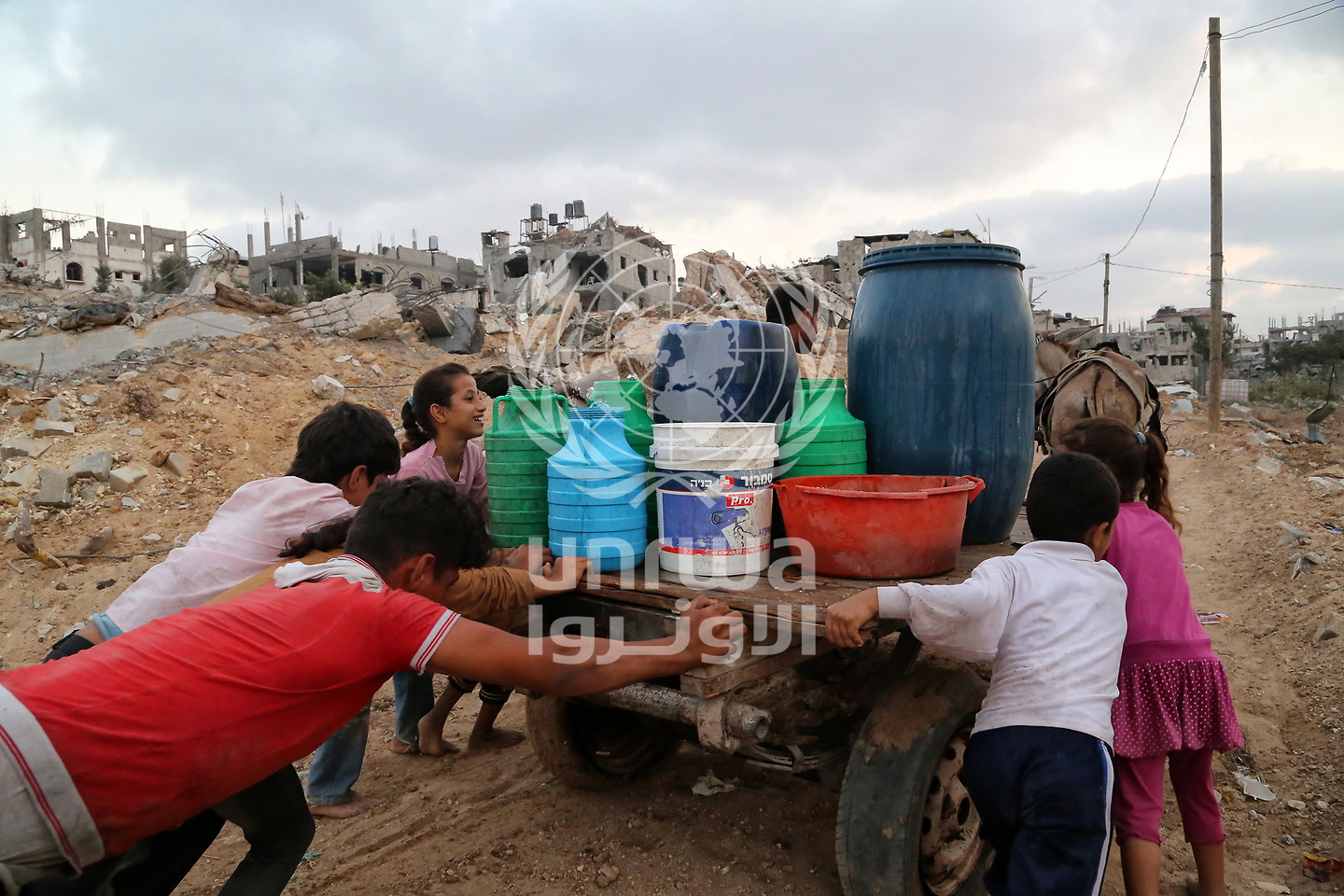A relevant, but separate, image from UNRWA:

People think of nothing but securing a few liters of water to meet their most basic daily needs. The water crisis here is severe—perhaps the most urgent struggle in the midst of all this destruction. Some whisper it, others say it out loud: “We’re not asking for much… we just want water." © 2025 UNRWA Photo by Fadi Thabet

UN News, 2025-04-11: "Gaza: UN rights office condemns Israeli buffer zone plan"
story